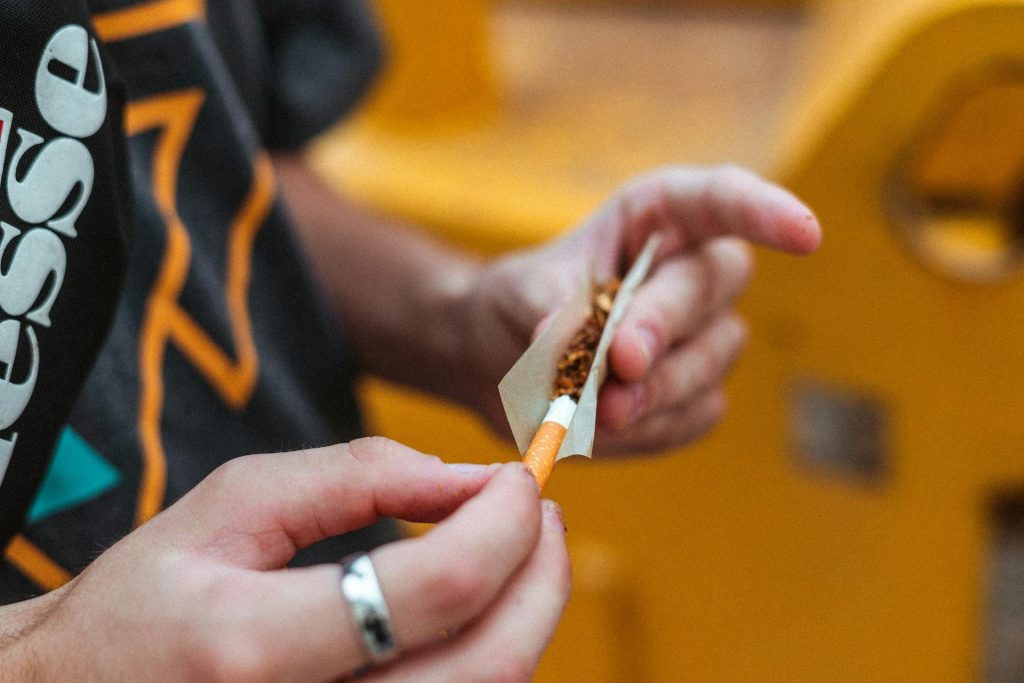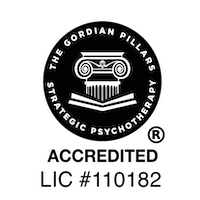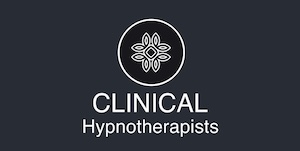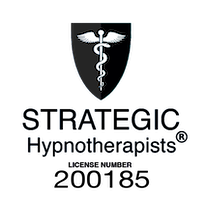Overcome Addictions & Dependencies
Solution focused approach to overcoming addictions and dependencies
Brief and effective treatment for addictions
Reclaim control, clarity & freedom in your life
Addictions
Are you feeling trapped in a cycle of habits like smoking, drinking, pornography, or other addictions?
At The Inward Process, we understand better than most the depth of this struggle.
- The internal tug of war between logically wanting to stop and feeling powerless to do so.
- Overpowering triggers, cues and cravings that hijack your thoughts and cloud your better judgement.
- The momentary, fleeting relief or buzz quickly spirals into enormous disappointment and regret.
- The promises you make to quit, only to find yourself back at square one.
With each moment of immediate gratification, the stress, boredom or emptiness deepen, tightening the grip of the habit. Over time, what began as a momentary escape evolves into a constant reliance, reinforcing the cycle and leaving you feeling more stuck than ever.

Is this you? Common signs and symptoms of Addiction
- Feeling out of control, as though the habit controls you rather than the other way around?
- Does the addiction feel like it meets an emotional or physical need, like reducing stress or getting a buzz when bored?
- Do triggers or urges suddenly hit you? Like it floods your body and you feel you can’t resist?
- Repeating the cycle of cravings, brief relief or buzz, and overwhelming regret and/or guilt afterwards.
- Do you promise, “just one more time, and then I’ll quit”, but find yourself stuck in the same pattern?
- Does a part of you want to quit, but you feel like you can’t after past relapses?
- You justify or rationalise the behaviour, despite the negative consequences and harm it’s causing in your life.
- You feel you can’t talk about your struggles because you believe nobody understands what you’re going through, fearing judgement of others, or the weight of your own shame and weakness.
At The Inward Process, we know addictions aren’t about your lack of willpower, a weak character, or the fact that you have an “addictive personality”. It’s your brain and body forming deep seeded unconscious patterns, in an attempt to seek relief from emotional discomfort, or fill an unmet need. There is a process behind the addiction, and it can be a complex web of thoughts and feelings. However, it can be understood, managed and and overcome. If you’re ready to break the cycle of dependency and take back control, I’m here to help you. Contact me today to explore how strategic psychotherapy can ensure lasting clarity and freedom from your dependency.
Take 20 minutes to forge a new direction.
Click below to discover your
best self!
Hi, I'm Matthew
Your Local Strategic Psychotherapist and Clinical Hypnotherapist in Albury Wodonga
Hello, and welcome to The Inward Process, proudly serving Albury Wodonga and online. I’m Matthew Kovacevic, here to help you break free from addictions and dependencies. Whether it’s external substances like smoking, vaping, alcohol, drugs, or behaviours like emotional eating, pornography or retail therapy. Using strategic, evidence-based methods, we’ll work together to empower you to reclaim control and transform your relationship with these external vices.
Each session is uniquely tailored to you, addressing your specific triggers, cravings and urges. Our work will focus on understanding why you make the choices you do, and building the tools, strategies and skillsets to address these poor coping strategies – cultivating self-control and temperance.
Having personally battled addictions on pornography and emotional eating for a little over a decade, I understand first hand what you’re going through and how powerless this makes make you feel. The same strategies that helped me move beyond my addictions and dependencies, are now the same ones I help my clients to overcome impulsivity and the need to turn to external vices for relief. Particularly relief from pain, stress and boredom.
At The Inward Process, I’ve supported clients from all walks of life – teenagers, young adults to seasoned professionals – helping them take back control, adopt healthier coping mechanisms and overcoming limiting beliefs that once kept them stuck with their addiction.
If you’re ready to invest in a process as unique as you are in overcoming addictions, then I’m here to help you make that happen. Let’s get started.






How do we address Addictions
Dependencies?
At The Inward Process, we see addiction differently. What many people call addiction is actually a dependency. Because in truth you aren’t actually “addicted”, but merely dependent on the feeling you think the substance, behaviour or habit gives you – a feeling that you believe you cannot give yourself. Or cope without. So whatever “it” is, an external substance/thing like drugs, alcohol, smokes, or an external behaviour done like shopping, social media, pornography, or binge eating, the first key question is: What does “it” give you, that you feel you can’t give for yourself? Recognising that this dependency is ironically an attempted solution for you to get back in control – is fundamentally key to breaking free from an “addiction”.
Dependencies are a process – a series of steps driven by immediate gratification. A trigger, urge, or craving arises, often during moments of stress, boredom or overwhelm. The discomfort feels intolerable, and the immediate response is to turn to “it” for relief, whether a buzz, calmness or a form of escape. Over time, your brain links these behaviours to a temporary relief, reinforcing the dependency. Because dependencies are present-oriented, you prioritise this immediate, short term relief, even when your logical mind knows the future consequences and harm this causes. Ultimately, this process reinforces the very cycle you wish to escape, making it easy to fall into patterns that keep the dependency alive.
We then focus on two critical areas. First, your cognitive style – how you think about the dependency and your approach to decision making. Secondly, your attributional style – how you explain your choices and whether you believe change is possible. By reshaping these perspectives and helping you critically analyse your triggers, beliefs and behaviours, we empower you with healthier coping strategies and for you to take charge. You are not defined by your past – your previous relapses or failed attempts. We know that you are capable of change, and that you are going to change!
Our tried, tested and proven methods will teach you how to compartmentalise intrusive thoughts and regulate your emotions effectively. You’ll learn to “park” those thoughts and feelings that don’t serve you (those urges that come out of nowhere). Allowing you to tolerate discomfort and see it for what it is – a sensation in the body you can consciously manage. These skills enable you to act consciously and deliberately, putting you back in control of your choices. So that your feelings serve you, not the other way around!
If you’re ready to reclaim control and break free from dependencies once and for all using our cutting edge approaches, then contact me today to book your free 20 minute discovery session.
What we offer

Personalised sessions to overcome addiction
Every session is tailored to you, helping you to understand what an addiction actually is (as a dependency), its root causes, and most importantly, not just to manage, but how to overcome dependencies effectively.

Break free from the cycle of addictions and dependencies
You will learn how to break free from the common patterns of dependencies that keep you stuck like overthinking, avoidance and the fear of uncertainty, so that you can reclaim control.

Develop lifelong skills and tools for lasting change
Learn practical, empowering skills and tools, to build resilience, control your emotions and face uncertainty with clarity and poise. These lifelong skills will empower you to create meaningful change.
Take 20 minutes to forge a new direction.
Click below to discover your
best self!
FREE Individual Recordings
Directly to Your Phone
Good therapy teaches you to operate differently in the world. We give you a range of resources to help discover a new way of being
Discover What is Possible
Frequently Asked Questions
Not sure yet? Here are the answers to some common questions
Addiction is often described as a condition where someone feels a compelling need to repeatedly engage in a behaviour or consume a substance. This is typically driven by a psychological or emotional reliance on the feeling or relief that the substance or behaviour provides. It’s not always about a physical need but about what the individual believes the substance or activity gives them that they can’t generate internally.
At The Inward Process, in truth, you aren’t actually addicted to the substance/thing, but rather this is a dependency, nor is it some disorder.
Signs of addiction vary but include:
- Overwhelming focus (craving, trigger, urge) on the substance or behaviour.
- Failed attempts to cut back or quit.
- Emotional discomfort when not engaging in the behaviour/substance.
- Mood swings and irritability.
- Withdrawal from social activities.
- Continued use despite negative consequences.
There isn’t a singular “addictive personality.” Nor an “alcoholic/smoking gene”. What might feel like addiction is often linked to emotional or psychological factors, such as difficulty coping with stress or discomfort, or the need to feel more in control. People sometimes adopt beliefs that they are inherently prone to addiction, but this is more a reflection of learned behaviours rather than a fixed personality trait.
People often turn to substances or behaviours as a way to manage emotional or psychological discomfort. Whether it’s stress, anxiety, boredom, to move away from pain, or a desire to feel more in control, these external habits provide a temporary escape or relief. Over time, this reliance can become habitual, as individuals link their sense of relief or comfort to the substance or behaviour rather than their own internal abilities.
There are many different perspectives that delve into childhood, your life story, genes, and other factors, but the bottom line is, you don’t have to regurgitate your whole life story here. At The Inward Process, we recognise there is a lack of distinction between what they think the substance/behaviour gives, vs what they think they can give themselves. That is what causes someone to turn to the dependency, and become an “addict”.
Dependency refers to a psychological or emotional reliance on a substance or behaviour to achieve a certain feeling or state. Unlike physical addiction, which involves chemical cravings, dependency is more about the belief that you need something external to manage your emotions or circumstances. It comes back to what is the external thing or behaviour giving you, that you feel you cannot give to yourself.
Yes, hypnotherapy can help you quit smoking by targeting the emotional and mental connections that keep you reaching for a cigarette. By reprogramming the subconscious mind, (the part of you that maintains the problem, as the logical part of you knows you should quit) hypnotherapy helps weaken these associations. It allows you to build healthier responses to stress, boredom, pain, and other triggers. This solution oriented approach shifts your focus from dependence on cigarettes to developing internal control over your cravings.
Absolutely. Hypnotherapy can ease withdrawal symptoms by calming the mind and nervous system, reducing the intensity of cravings and the emotional triggers that come with quitting. Through relaxation and subconscious reinforcement, it makes the transition away from smoking less overwhelming, allowing you to manage your withdrawal symptoms with greater ease, comfort and resilience.
Yes, combined with strategic psychotherapy, clinical hypnotherapy is very effective for addressing drinking behaviours by helping individuals recognise and manage the psychological, or emotional triggers that lead to alcohol use. Whether your goal is to just have a few drinks over the weekend, or you want to cut out drinking altogether, clinical hypnotherapy builds your internal coping mechanisms. This reduces the need for alcohol use to manage stress, anxiety, and the challenges of life.
Yes, you can. It’s common to believe that repeated relapses mean you’re always going to fail, but this belief can actually work against you. When people think of addiction as a fixed part of who they are—like having an “addictive personality”—they make it harder to break free. The truth is, addiction isn’t an unchangeable trait; it’s a process influenced by patterns of thought, emotional triggers, and learned behaviors.
Past attempts, while frustrating, are not proof of failure but opportunities to understand what didn’t work. To understand, what the addiction is giving you that you feel you cannot give for yourself. With the right strategies/guidance to address these underlying drivers and shift the focus toward what is called an internal locus of control, you can replace destructive patterns with healthier, more sustainable ones. Change is possible when you recognise that you’re not defined, nor your future defined by your past efforts. You’re then empowered by what you decide to do today, and how you can learn from the past.
Strategic psychotherapy, first termed by Jay Haley, is a solution targeted approach that focuses on the specific thought patterns and component parts of an addiction, or dependency. Rather than a one size fits all, or going over your entire life story/childhood (again), strategic psychotherapy personalises interventions to tackle the root cause of each individual’s behaviour. It guides individuals to building their internal resources, reclaim control and respond to stressors of life in self-sustaining, healthier ways.
Clinical Hypnotherapy is a specialised therapeutic approach that employs heightened focus and guided relaxation to access the subconscious mind (the autopilot part of the mind that maintains the psychological problem). This method addresses the underlying beliefs and patterns contributing to addiction, making it easier to break cycles of addiction and dependency. It is particularly powerful for rewiring automatic thoughts and responses, helping clients reduce cravings, cultivate temperance and increase emotional resilience.
After the initial interview, where we uncover and understand what is going on for you, we then move to the hypnotherapy session. During a hypnotherapy session, you’ll be guided into a deeply relaxed state, allowing you to access your subconscious mind without the usual conscious barriers. Here, the hypnotherapist works with you to challenge the emotional connections driving your addiction, replacing these with healthier associations. This process is gentle yet powerful, helping your mind adopt a new perspective that doesn’t rely on the substance or behaviour.
The number of sessions will vary on an individual case by case basis, but typically, a series of 4-6 sessions is recommended to see significant results and address the patterns underlying addictions and dependencies effectively. Some individuals may see results in fewer sessions, while others benefit from additional sessions for reinforcement. It will depend on how engaged you are in the process, as well as how complex your presenting issue is.
The first session, which includes an extended interview will last 90 minutes. The follow up sessions are 60 minutes. This process is to ensure that each session is thorough, providing ample time to address specific issues and make meaningful progress towards addiction recovery.
Yes, it is just as effective as in-person clinic sessions. Many people find the virtual sessions far more convenient, helping them open up fully and relax without having to get in the car and beat the traffic. The techniques and outcomes remain highly effective, as the focus is on mental and emotional engagement rather than physical presence.
Coverage varies depending on your insurance provider and policy. Some plans may cover hypnotherapy and psychotherapy for addictions, but check with your provider to understand your options and see if coverage applies.
Yes, if you choose, a voice recording of the hypnotherapy session will be provided. Repetition is the mother of all skill, and the hypnotherapy recording will reinforce the learnings and insights you receive in the session, as well as enable you to go a little deeper for our next session.
Addiction is best understood as a process, shaped by patterns of thought, emotional triggers, and behavioural responses. It’s not as simple as labelling it as a disease, which can disempower and strip an individuals of a sense of control. However, nor is it purely a choice, as it often develops from deeper psychological struggles.
For example, individuals may feel out of control because they rely on external behaviours to manage internal discomfort, stress, or uncertainty. They might overthink their urges, avoid dealing with the root causes, or have difficulty compartmentalising emotions, leading them to seek relief in external habits. These patterns create a cycle where the behaviour feels automatic, making it seem like there’s no choice.
The key is recognising that while addiction may feel overwhelming, it’s not an identity or an unchangeable state. By addressing the emotional and cognitive drivers—like building resilience to stress, improving tolerance for discomfort, and creating healthier coping mechanisms—individuals can disrupt these patterns and regain control over their lives. With the right strategies, the need for the behaviour diminishes, empowering the individual to make sustainable, positive changes.
